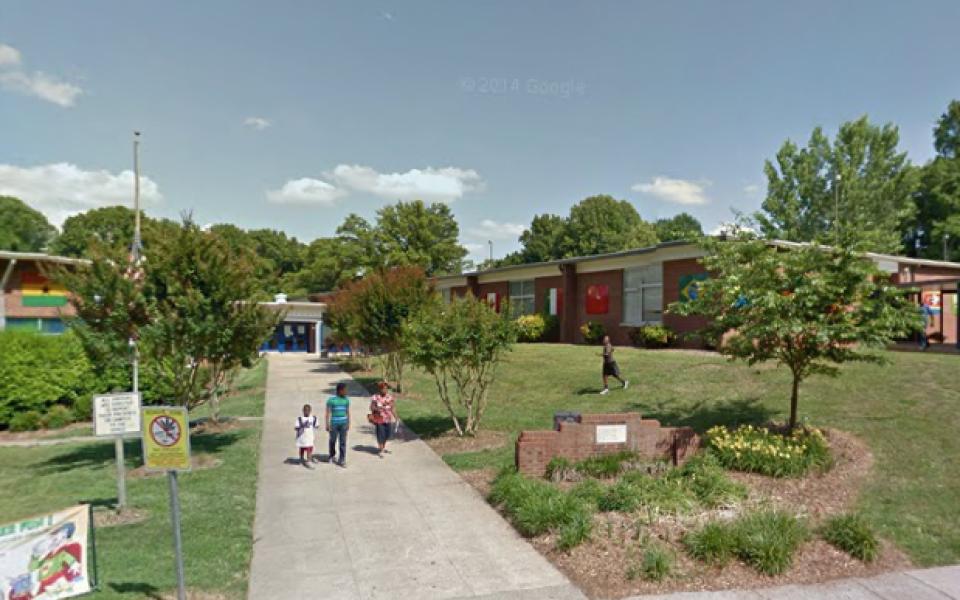For 30 minutes on Tuesday evening, one speaker after another lambasted Winston-Salem/Forsyth County School Board members for the abysmal conditions at Ashley Elementary, an aging school in northeast Winston-Salem serving predominantly African-American students on free and reduced lunch where teachers have complained that mold is making them sick.
Eunice Campbell, a parent who unsuccessfully ran for school board earlier this year, told board members that over the past 18 months she has been “amazed at the level of systemic racism” that she saw when they refused “to change policies that were blatantly unfair to subsets of children.”
Campbell added, “You didn’t see what the problem was. And when people questioned it, you got offended.”
Campbell questioned plans to spend millions of dollars on two suburban middle schools, and repairs to the stadiums at Mount Tabor High School and Glenn High School.
Ashley Elementary is ranked as the lowest performing school in the state, but its bricks-and-mortar challenges have been known for years.
Under the original $552.5 million bond proposed by staff to the school board in July 2015, Ashley Elementary was slated for replacement. School officials told community leaders in November of that year that they were trying to negotiate a land deal to secure property to build a new school.
Then, in the spring of 2016, when the school board trimmed the bond package that would eventually go before voters down to $325.8 million, replacement of Ashley Elementary was dropped from the list.
“That was something in our long-range plan that the board felt like all the pieces that would need to be in place wouldn’t fall into place for it to happen in this construction cycle,” Chief of Staff Theo Helm told Triad City Beat at the time.
TCB reported in early 2016 that Ashley was 136 students over capacity, even taking into consideration students housed in mobile units. According to the district’s own numbers, the $325.8 million bond, which was eventually approved by Forsyth County voters in November 2016, wouldn’t keep up with demand for classroom space. A TCB analysis using numbers provided by the district indicated that the percentage of students housed in mobile units or overcrowded in classrooms would be reduced from 11.6 percent to 5.0 percent through construction financed by the bond.
Asked what the district planned to do to meet the population needs at Ashley, Helm responded, “Make use of extra space, extra rooms in the building, and use mobile units.”
Join the First Amendment Society, a membership that goes directly to funding TCB‘s newsroom.
We believe that reporting can save the world.
The TCB First Amendment Society recognizes the vital role of a free, unfettered press with a bundling of local experiences designed to build community, and unique engagements with our newsroom that will help you understand, and shape, local journalism’s critical role in uplifting the people in our cities.
All revenue goes directly into the newsroom as reporters’ salaries and freelance commissions.


Leave a Reply